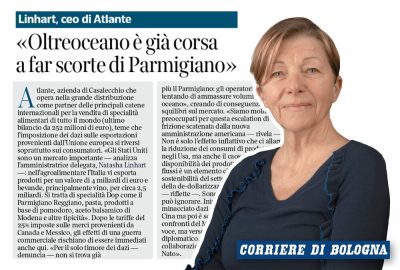Atlante
News
A plant-based future for the health of the planet: where can we begin?

8 November 2023
In a world where sustainability and environmental protection are becoming increasingly central to people’s daily decisions, a recent study shows how our food choices can play a crucial role. The research, published in the Nature Communications journal, examined the potential effects of adopting a predominantly plant-based diet and revealed that this could be the key to safeguarding our planet.
Meat and dairy production: how much does it cost the planet?
Meat and dairy products are not a mere culinary tradition (particularly in Italy), but fundamental components in the diets of many cultures. However, the side effects of these eating habits on the health of our planet are becoming increasingly evident. The production of meat – especially beef, pork and chicken – and milk has a significant impact on the environment, which goes beyond greenhouse gas emissions alone. In fact, deforestation, loss of biodiversity and pollution of water resources are all direct consequences of the growing demand for these products. Vast areas of rainforest are razed to make way for livestock farms, putting entire ecosystems at risk.
Plant-based diet: why it can be a solution
Faced with these alarming figures, many may wonder how we can reverse the trend. The answer may lie in a transition to a plant-based diet. In fact, by decreasing meat and dairy consumption by 50% by 2050, we could achieve significant environmental benefits, such as a 31% reduction in emissions compared to 2020, halting deforestation for livestock farming, and restoring ecosystems. Some regions, such as China, sub-Saharan Africa, and South America, could reap the most tangible benefits from this change.
But the challenge is on two fronts. While we cannot ignore the fact that the demand for meat and meat products will continue to increase with population growth, it is also true that, if we could replace even half of our meat and dairy consumption with plant-based alternatives, we could reduce the global agricultural area by 12% by 2050. This study is not the first to propose a shift towards a more plant-based diet as a solution, but it certainly provides one of the most detailed analyses on the subject.
Tackling environmental and climate challenges requires commitment, innovation and willpower. Studies like this one, however, show us how our daily choices can make a difference. If we want a sustainable future, we must seriously consider a plant-based diet as part of the solution.





